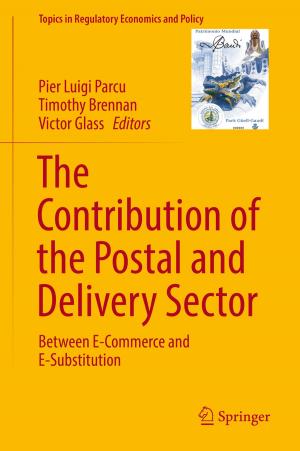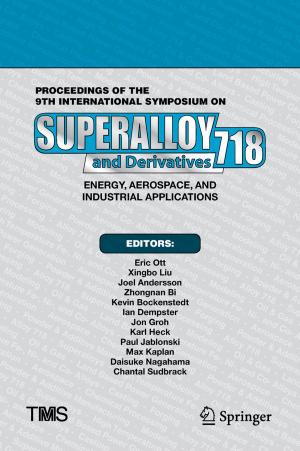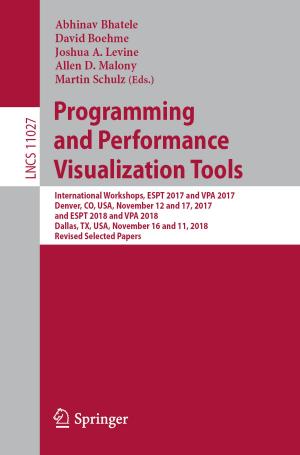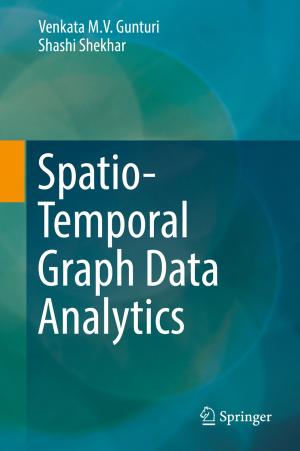Transformations of Global Prosperity
How Foreign Investment, Multinationals, and Value Chains are Remaking Modern Economy
Business & Finance, Economics, International Economics, Economic Development| Author: | Caf Dowlah | ISBN: | 9783319711058 |
| Publisher: | Springer International Publishing | Publication: | April 19, 2018 |
| Imprint: | Palgrave Macmillan | Language: | English |
| Author: | Caf Dowlah |
| ISBN: | 9783319711058 |
| Publisher: | Springer International Publishing |
| Publication: | April 19, 2018 |
| Imprint: | Palgrave Macmillan |
| Language: | English |
This book presents an in-depth understanding of the transformation of modern economy in the twenty-first century by examining the interface and interplay of three key forces of contemporary global economy—Foreign Direct Investment (FDI), Multinational Enterprises (MNEs), and Global Value Chains (GVCs)—and how the emerging nexus of these forces has already ushered in revolutionary transformation in global production, investment, trade, and employment in recent decades.
A distinctive feature of the book is that it situates the contemporary GVC revolution—that envisages fragmentation and dispersion of production processes across the world based on competitive costs and quality—as a natural progression of the traditional FDIs-MNEs nexus, which emphasized internationalization of production and trade in search of profits, resources, markets, or cheap labour. Moreover, the book provides a comprehensive analysis, from historical, theoretical and empirical perspectives, of both traditional FDIs-MNEs Nexus that dominated the world economy until the end of the twentieth century, and of the New Nexus of FDIs-MNEs-GVCs, that has opened grand opportunities for global prosperity by providing short-cut paths to industrialization and economic growth for less developed countries.
As an exemplar, the book examines GVCs in automobiles—a medium-tech manufacturing activity with numerous backward and forward linkages—to demonstrate how the FDI-MNE-GVC interface in this sector has wedged industrialization, employment, and trade in six emerging countries/regions—Brazil, Central and Eastern Europe, China, India, Mexico and Thailand.
This book presents an in-depth understanding of the transformation of modern economy in the twenty-first century by examining the interface and interplay of three key forces of contemporary global economy—Foreign Direct Investment (FDI), Multinational Enterprises (MNEs), and Global Value Chains (GVCs)—and how the emerging nexus of these forces has already ushered in revolutionary transformation in global production, investment, trade, and employment in recent decades.
A distinctive feature of the book is that it situates the contemporary GVC revolution—that envisages fragmentation and dispersion of production processes across the world based on competitive costs and quality—as a natural progression of the traditional FDIs-MNEs nexus, which emphasized internationalization of production and trade in search of profits, resources, markets, or cheap labour. Moreover, the book provides a comprehensive analysis, from historical, theoretical and empirical perspectives, of both traditional FDIs-MNEs Nexus that dominated the world economy until the end of the twentieth century, and of the New Nexus of FDIs-MNEs-GVCs, that has opened grand opportunities for global prosperity by providing short-cut paths to industrialization and economic growth for less developed countries.
As an exemplar, the book examines GVCs in automobiles—a medium-tech manufacturing activity with numerous backward and forward linkages—to demonstrate how the FDI-MNE-GVC interface in this sector has wedged industrialization, employment, and trade in six emerging countries/regions—Brazil, Central and Eastern Europe, China, India, Mexico and Thailand.















